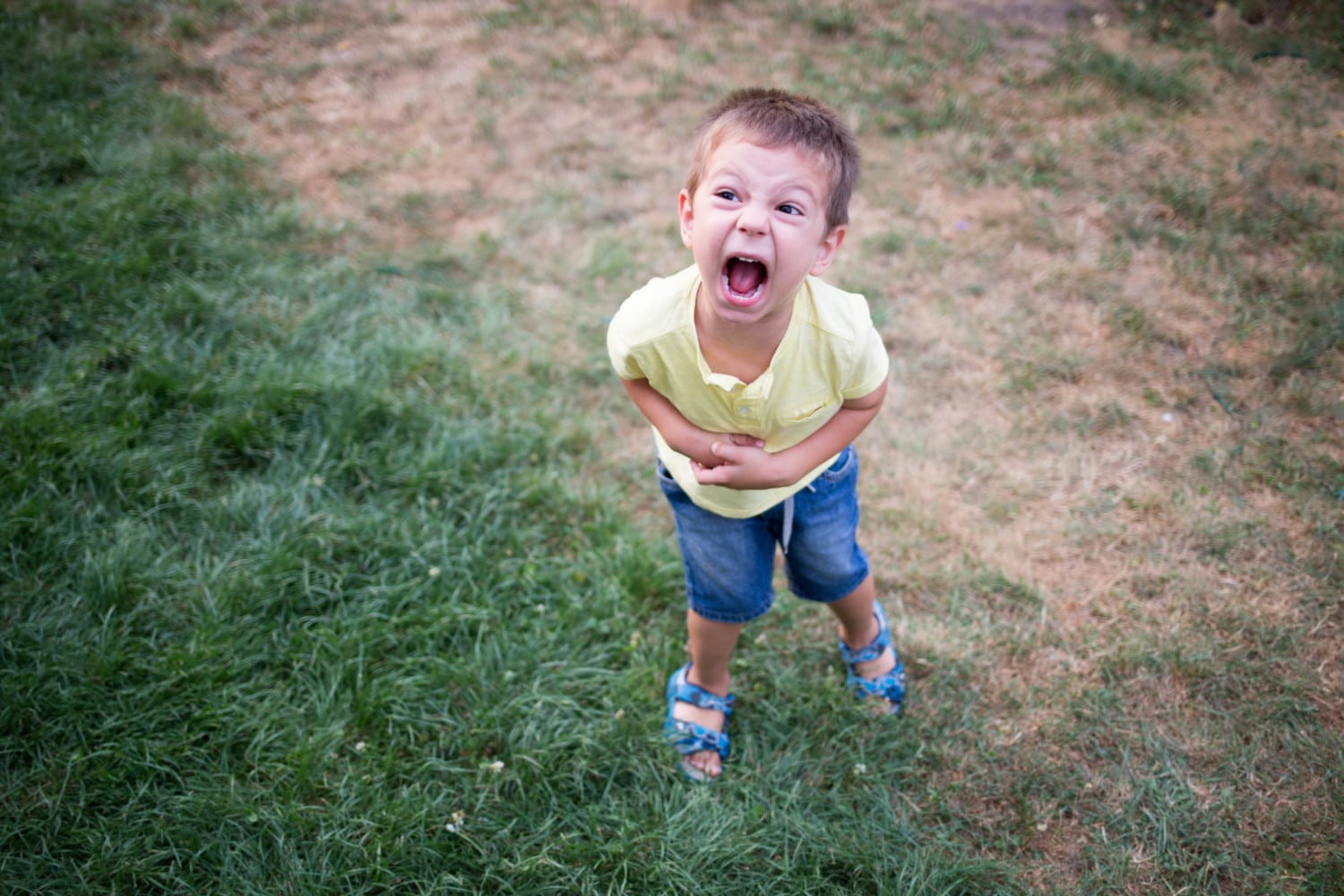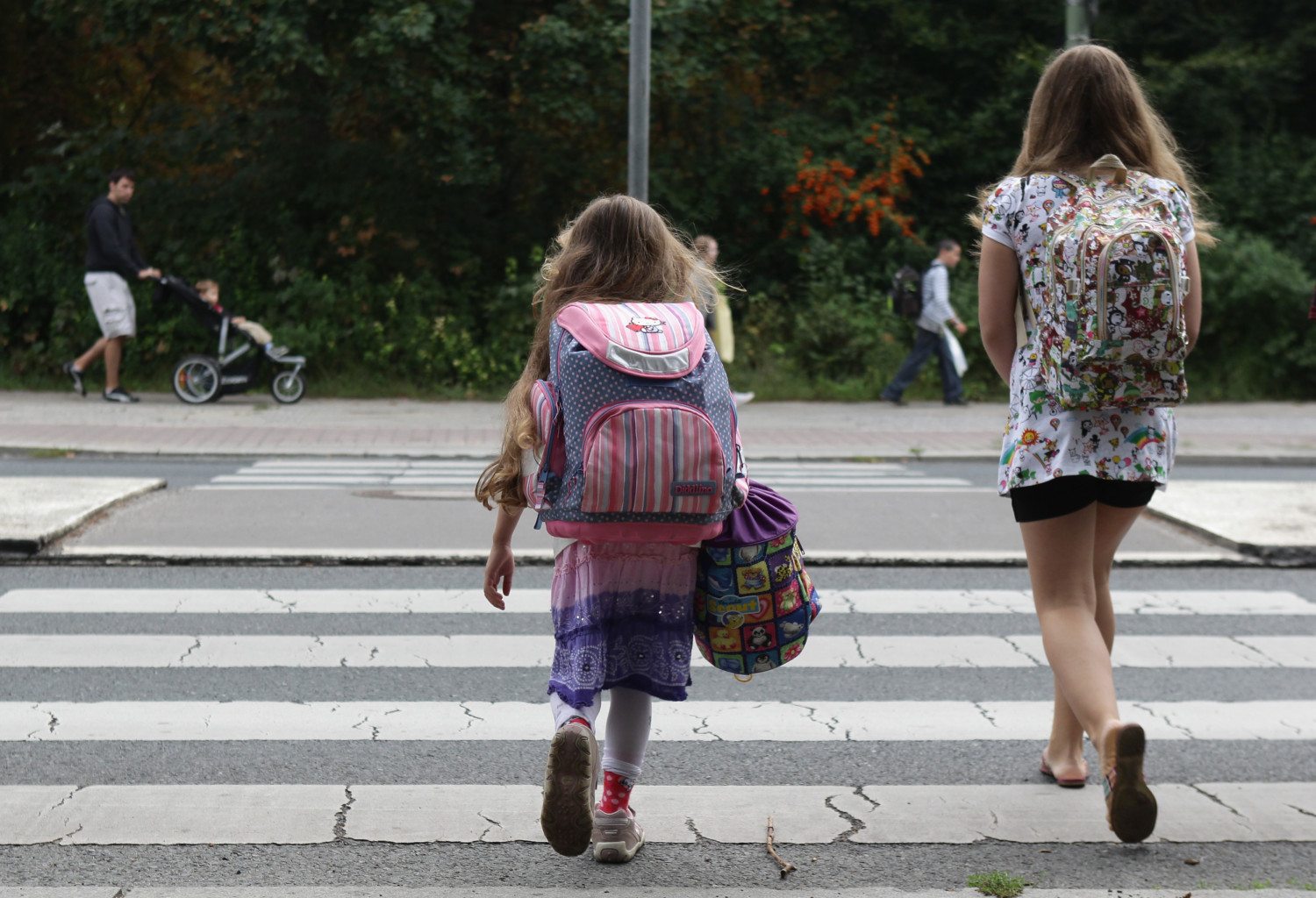Your young child gets glowing reports from teachers on his or her behavior at school or daycare. But then, when your kiddo gets home, it’s like a switch flips and you’re left dealing with nonstop meltdowns and temper tantrums.
Does this scenario—or some variation of it—seem familiar? If you’ve experienced these or similar after-school blues, you’re not alone. And, perhaps even more importantly, experts say this is a completely normal phenomenon and that there is no cause for concern.
In fact, parenting educator Andrea Loewen Nair has one possible theory for why kids throw tantrums and behave badly after being picked up from school or daycare.
She calls it “after-school restraint collapse,” and Nair thinks it’s important that more parents take time to learn about this behavior.
Essentially, her theory goes something like this: After working very hard all day to be attentive, good sharers and kind playmates, kids reach the end of their ropes by the time the afternoon (and, consequently, pick-up time) rolls around.
“Kids do what they need to in order to ‘be good’ or keep the peace,” Nair, the author of “Taming Tantrums,” told Today’s Parent. “After they’ve done that all day, they get to the point where they just don’t have the energy to keep this restraint, and it feels like a big bubble that needs to burst.”

It’s also possible that kids melt down after a long day at school or daycare because they’ve been holding in all that energy until they have a safe place to let it all go. Much like we put on a happy face at work, only to cry privately at home or in our cars, so too do children hold in their most intimate emotions until they have a safe place to release these pent-up hurts.
And that safe place just so happens to be their Mommy or Daddy’s lap … or their living room carpet as they pound their fists on the floor and cry and rage for apparently no reason.
So what should parents do?
The best thing to do is give your kids space rather than barraging them with questions about homework and what happened at school that day, according to Rice Psychology Group. Instead, keep things more mellow and laidback, such as by playing gentle, soothing music on the car ride home.
MORE: 9 reasons why your child’s tantrum is actually a good thing
Another option is to simply sit quietly with your child while they decompress from the day. That’s the “magical formula” that finally worked for mom Jenna Stehler after she’d tried what felt like every other possible solution with her son, as she writes for Motherly.
“We came inside, I gave him a big hug, a big snack, and then … silence,” she writes. “We sat at the table together while he ate, neither of us saying a word. And he was calm and content. And so was I. When he was finished eating, he gave me a genuine smile and we moved on to the next part of the day. And that was that.”

MORE: 12 cool gifts to get kids excited for the new school year
Make light, supportive observations such as, “Your teacher said you were so good today. I am so proud of you. You always make me and Daddy (or Mommy) so proud.”
“Give your child the lead to start talking when he or she is ready,” Nair tells Today’s Parent. “When that happens, you can inquire about any emotionally intense moments that may have happened during that day.”
Experts also say to make sure that you offer snacks, as kids are probably hungry and thirsty and battling low blood sugar at the end of the day. Need some inspiration? Check out our list of healthy after-school snack ideas.
This story originally appeared on Simplemost. Check out Simplemost for additional stories.



